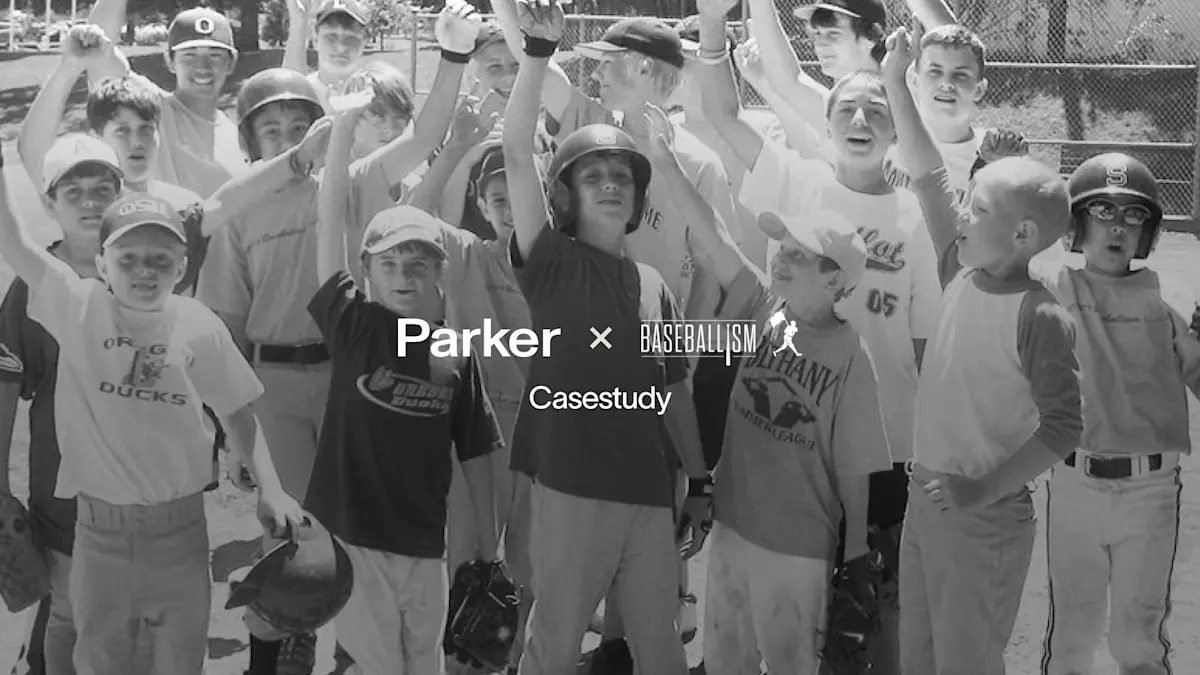How Baseballism Accelerated Omnichannel Growth Using Parker

Learn how Baseballism, baseball’s official off-the-field lifestyle brand, uses Parker to bridge liquidity gaps and scale wholesale after the chaos of COVID supply chains.
“Parker is the number one fintech product that we use. We hope to continue using them for everything we possibly can. I see Parker playing a pivotal role in our eCom tooling stack for a long time.” - Jon Loomis, Co-Founder & CFO of Baseballism
About
Baseballism launched in 2013 with a garage of prototypes and Kickstarter campaign funds. Nearly a decade later, the baseball merchandise brand is a $22M enterprise growing by double digits. They’re licensed by the MLB and iconic players like Babe Ruth and Roberto Clemente.
Challenge
Baseballism is a physical goods supplier in growth mode, meaning they need tons of cash to run their supply chain of acquiring, holding, and selling through inventory. According to Jon Loomis, their co-founder and CFO, brands can quickly get handcuffed this way. Even if you’re profitable, if you can’t finance your working capital or iron out your balance sheet, your runway burns up fast.
They tried solutions like Brex in 2018, but when COVID began, Brex switched their underwriting and left them high and dry. Jon scoped out popular names like Divvy and Rho, but, like many fintech players, they put too much emphasis on the tech, not the financial terms.
Overall, neither legacy credit nor newer B2B products could meet Baseballism’s cash flow needs.
“You could be highly profitable from an income statement perspective, but you’ll run out of money if you don’t figure out your balance sheet and how to finance your working capital requirements. That pain point is exactly where Parker comes in.”
Solution
As CFO, a core part of Jon’s role is finding “low-cost money” based on how many dollars the capital costs and how many strings are attached to it (i.e., personal guarantees or traditional lender requirements). When he discovered Parker, our products presented huge draws on both fronts, especially for ex-Brex users like Baseballism.
They loved the “really attractive” financing terms on the Parker corporate card (limits up to $5 million with payback periods up to 60 days) as well as how we don’t require old-school forms of leverage.
In Jon’s words, Parker became a quick and easy way to support his company’s balance sheet and get over that hump of financing a scaling supply chain.
“Many fintech companies want to sell you on their tech, not their actual terms. But that’s less important to me. I always ask, ‘What’s the value of the transaction?’ It really is all about the terms, which Parker delivers in spades.”
Strategy
Parker underwrites to work with your capital needs
From the get-go, Parker presented the value-add of a straightforward underwriting process. Jon compares this to Baseballism’s experience with Brex, who’d underwrite them every 20–30 days to increase or restrict their line based on revenue flow. If you’re a seasonal business, this only exacerbates your working capital issues.
After signing up with Parker, the Baseballism team finally experienced holistic underwriting. Jon tells us, “Parker looks at your whole book to understand you from beginning to end, and then underwrites on a consistent, even flow that helps solve your problem on an annual basis.” To push rapid omnichannel growth, “that’s ultimately what we need.”
Bridge liquidity gaps with Parker’s true net 60 card
In Jon’s experience, almost every physical goods merchant in the country is handling too much inventory due to the “whiplash effect” of COVID supply chains. No one could secure any product — until everything showed up all at once.
While Baseballism was better than most on that front, Jon affirms utilizing Parker’s net 60 corporate card helped immediately bridge those liquidity gaps. They don’t need to pull hard cash to fund the slowdown they’re selling through. Instead, Parker’s generous terms enable them to flex inventory up and down and focus capital where it matters: expanding wholesale.
Scale omnichannel efforts with Parker
Like countless predominantly DTC brands, Baseballism has been doubling down on wholesale since the pandemic. This means working with more dealers on 30- and 60-day terms — and receivables and cash conversion cycles going up.
Their Parker card has been essential for navigating those windows, giving Baseballism the breathing room to get product out the door and get paid for it with fewer worries about making that payback deadline.
“Parker really helped soften the blow with this post-pandemic supply chain effect that every single brand in the country is dealing with. They were able to immediately bridge that liquidity gap for us.”
Results
Since switching to Parker, our card has become, in Jon’s words, Baseballism’s number-one fintech product. Beyond standard inventory or ad expenses, they charge their Parker card or even utilize intermediary payment processing systems wherever possible to take advantage of that float.
Ultimately, the Baseballism team looks forward to growing their credit line with Parker and partnering with us for the long haul — across every stage of omnichannel growth.
“Parker is really just a great product to have in your capital stack. They’re now my go-to card because of their associated credit terms. We’re very bullish on tools like Partner because it’s a simple, easy way to help stabilize our balance sheet.”
Ready to Join the Financial Revolution?


